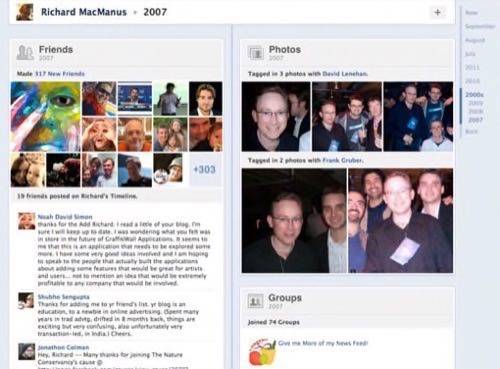Facebook says its Timeline “tells the story of who you are.” That’s lofty wording. It assumes that you share “who you are” on Facebook. It also assumes you share enough of yourself to make Facebook Timeline “the” definitive “story” about you. Similarly, Path version 2 calls itself a “journal.”

While both these apps are ostensibly for sharing, they’re also asking people to use them to store their own memories. Facebook and Path both put great effort into pretty presentations of these memories. But each could change tomorrow for business reasons. If we want to be able to reminisce about this early era of mobile tech, we can’t depend on the free, hosted apps we use to share our lives now.
These apps, as well as Instagram, Google+ and so many other life-streaming apps, are free for a reason. Their business models are based on user data, and they need as much of it as they can possibly get to make money. If these businesses can make money selling our personal data, it must be valuable.

To us, they’re invaluable. We can’t put a price on our photos from college or of the day our child was born. But advertisers are optimistic about their ability to do so, so they pay for these social apps for us. And we dutifully upload our photos there because it’s free, it’s easy, it looks pretty, and our friends are there.
Hopefully, you keep your photos backed up on your own computer. If not, let me stop you right there. Please try to do that. You won’t regret it.
But we’re increasingly putting effort into the arrangement of those memories on other people’s servers. When we organized physical photo albums, we owned the metadata of that arrangement, so to speak. But our albums, orders and captions on Facebook aren’t ours. Facebook’s data portability is definitely getting better, but it’s a bit like dumping out your old photo albums on the floor.
When we put the effort into trimming our Timelines, choosing which events to highlight and which to hide, we’re doing data entry for Facebook, but there’s no guarantee that work will hold its value for us.

What happens when Facebook changes its business model, or Path or Instagram comes up with a business model, and they decide to rearrange our histories for better ad value? Would you let someone do that to your physical journal or photo gallery? This is why I quit Path, because I didn’t want to put too much work into making great memories I could someday lose.
So my solution is to journal first and share second. I want to make Day One the first app I launch to record a memory. I back it up to iCloud and my own computer. If a post is worth sharing to a social network, I’ll do that next. If someone makes a great comment I want to remember, I’ll copy it into my Day One entry. It’s worth it to me to own the data.

You might say you don’t care enough about the things you share on Path or Facebook, or that they’re just temporary. But scroll back in your timeline and ask yourself if that’s true. When I do that, it feels like these trivial little things become much more valuable over time. I think that’s exactly why Facebook and Path let us share them for free. Later, when they’re worth more to us, we’ll want to see them again. They might be monetized by then.
Lead image courtesy of Shutterstock










